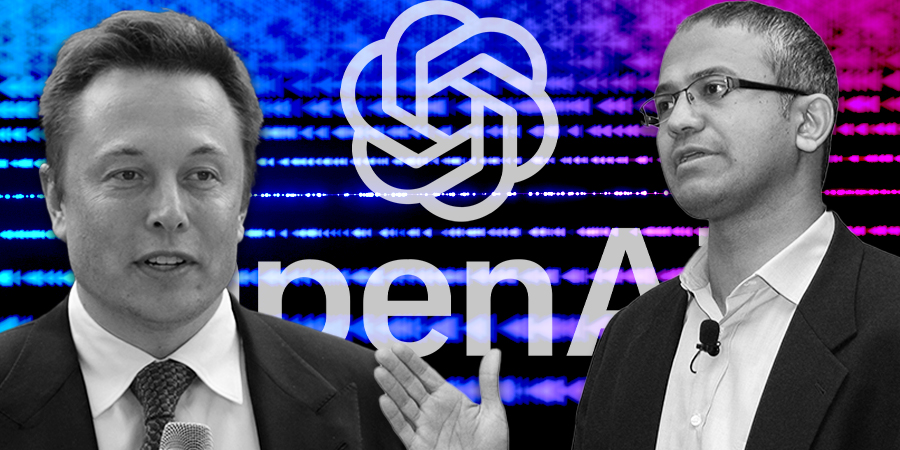In this article, we’ll delve into the recent controversy sparked by Elon Musk’s assertions that Microsoft holds sway over OpenAI, a claim emphatically denied by Microsoft’s CEO, Satya Nadella.
Key Takeaways:
- Microsoft CEO Satya Nadella disputes Elon Musk’s claims about Microsoft’s control over OpenAI.
- Musk, a co-founder of OpenAI, has been critical of the organization, alleging it is effectively a “maximum profit company” under Microsoft’s influence.
- OpenAI transitioned from a nonprofit to a “capped-profit” model in 2019, with Microsoft as a major investor.
- Musk has expressed interest in creating a competitor to ChatGPT, named “TruthGPT.”
- Nadella argues that Microsoft’s relationship with OpenAI is one of partnership, not control.
Musk’s Accusations: Microsoft’s Alleged Control Over OpenAI
Elon Musk, the charismatic leader of multiple successful enterprises, recently stirred the pot of controversy.
He leveled an accusation against tech giant Microsoft, asserting that it had undue influence over OpenAI, the AI research lab he helped establish.
Musk was explicit in his allegation. He argued that OpenAI, once a beacon of nonprofit research, had devolved into a profit-maximizing entity under Microsoft’s sway.
He reiterated his claim in an interview with Tucker Carlson, asserting that Microsoft had an unusually powerful say in OpenAI’s affairs.
Satya Nadella: A Respectful Disagreement
The rebuttal from Microsoft’s corner came swiftly. Satya Nadella, the CEO of Microsoft, countered Musk’s claims with a respectful yet firm denial in a conversation with CNBC.
Nadella expressed his deep respect for Musk and his numerous achievements.
Nevertheless, he categorically dismissed the allegation of Microsoft controlling OpenAI. He asserted, “That’s factually not correct.”
From Nonprofit to Capped-Profit: OpenAI’s Shift in 2019
To understand the origins of this dispute, we must turn back the clock to 2019. OpenAI, originally established as a nonprofit, announced a significant structural change.
The organization transitioned into a “capped-profit” entity, striking a balance between non- and for-profit models.
Microsoft emerged as a key investor during this transition, which might be where Musk’s concerns stem from.
However, the new structure was designed to limit investor returns, ensuring that OpenAI’s focus remained on its mission rather than maximizing profits.
Musk’s New Ambition: The Birth of TruthGPT
Musk, while critical of OpenAI’s current trajectory, isn’t just a bystander.
He has expressed interest in establishing a competitor to ChatGPT, the language model developed by OpenAI.
His proposed project, “TruthGPT,” aims to be a truth-seeking AI that strives to comprehend the universe’s nature.
This proposed AI would challenge ChatGPT’s dominance and align with Musk’s vision of AI development. However, it remains to be seen how this ambitious project will unfold.
A Matter of Control or Partnership? The Microsoft-OpenAI Relationship
The crux of the ongoing debate centers around the nature of the relationship between Microsoft and OpenAI.
Is it one of control, as Musk asserts, or a partnership, as Nadella claims?
Nadella’s stance is clear. He maintains that Microsoft’s interest in OpenAI is noncontrolling.
Microsoft’s relationship with OpenAI is more of a commercial partnership, he says, rooted in mutual benefits and a shared vision for AI.
Microsoft’s significant investment in OpenAI doesn’t equate to control. Instead, the tech giant sees it as a necessary step in advancing AI technology and integrating it across their services.
As for the future, it’s undeniable that this debate has far-reaching implications.
The allegations, disagreements, and rebuttals underscore the importance of transparency and ethics in AI development.
With leaders like Musk and Nadella in the fray, the journey of AI continues to be a fascinating one.
The speed and direction of AI development are moving at an unprecedented rate.
As Nadella put it, “It’s moving fast, but moving fast in the right direction.” One can only hope that this rapid progress aligns with the best interests of humanity.
Conclusion
The ongoing discourse surrounding the relationship between Microsoft and OpenAI underlines the sensitive dynamics in the realm of AI development.
As pioneers such as Musk and Nadella take opposing stands, the focus remains on maintaining ethical guidelines and transparency.
While the debate continues, the speed and direction of AI development undeniably have profound implications for our technological future.
 Sections of this topic
Sections of this topic
















